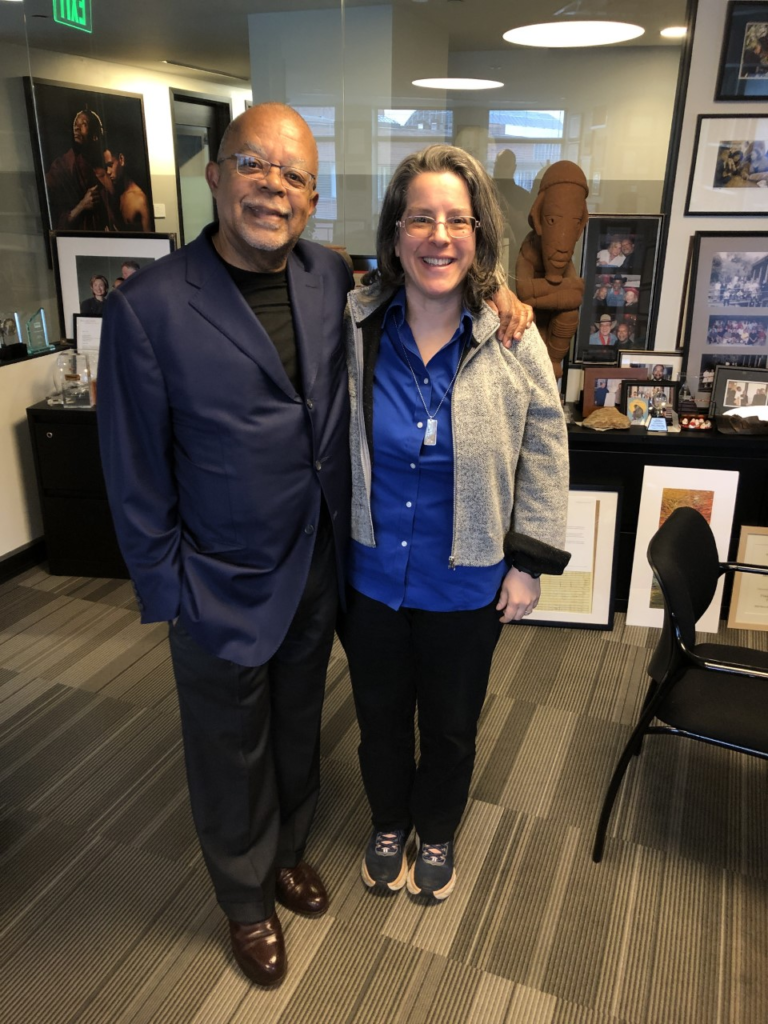
By Mikayla Walton, Associate Editor
Photo by Mikayla Walton
She is an English professor, an author, and a BLM advocate, but I bet you didn’t know that she is also doing a fellowship at Harvard. That’s right, Martha Patterson, one of our beloved English professors, is now working with the Hutchins Center at Harvard University. I had the opportunity to talk with Dr. Patterson about her work and to learn more about her Hutchins Fellowship semester, as well as subjects she’s passionate about.
If you’ve ever had the pleasure of taking a class with Dr. Patterson you know that she is very passionate when it comes to teaching, and she doesn’t avoid teaching topics that are deemed sensitive such as racism in literature and resistance to it. This is precisely how she joined in a fellowship at Harvard University. During the 2018-2019 school year, Dr. Patterson had been on sabbatical and was doing some reading on the image of “The New Negro.”
The concept of the New Negro is a positive image of Black men and women as educated, politically ambitious, or artistically accomplished designed to counter racist stereotypes in the late nineteenth and early twentieth century. She discovered that nobody had yet to trace the evolution of the trope, or figure of speech, and so she decided to gather a collection of essays that showed the evolution of the figure in African American newspapers and magazines. After she had completed a book proposal for a New Negro reader, she had heard an interview with Professor Henry Louis Gates, Jr. on NPR’s Fresh Air, and his fascination with the topic.
“I decided to contact him with the hopes that he would steer me to a publisher who might be interested in the collection I proposed,” Patterson explained. “He was thrilled that I contacted him and suggested that we co-edit, along with Gene Jarrett, a professor at NYU, a revision of the New Negro reader he had issued some years ago.”
While we discussed her work, we also began chatting about current events and how these events may also shape her research and the articles she is working on.
“I think everyone writes from the time they’re in,” Patterson said. “Which makes my work on how writers and civil rights activists of the early twentieth century combatted Jim Crow violence, segregation and discrimination that much more relevant. I think that for white people to understand the Black Lives Matter movement, they need to understand that for hundreds of years in this country, Black lives did not matter and all kinds of indicators—including health disparities, income inequality, incarceration rates, educational access, and policing disparities, still show that Black lives continue to ‘matter’ less in our nation. If we are truly going to live up to our country’s ideals of democratic equality, we need to address that disparity. As a first step, we need to read about the lives of American Black people from the past and present to understand not only the crushing effects of bigotry and racist violence, but also the incredible beauty, resilience, power, and innovation that define the Black experience in the United States.”
If you’ve taken classes with Dr. Patterson, you have discovered that racism is central in American literature. It is not a topic she teaches lightly, and she does a fantastic job of teaching it because it is something she feels very strongly about–that we must understand the past and how this has affected people. This is a history steeped in pain and we must learn from it. In fact, what Dr. Patterson has learned during her fellowship she plans on bringing back to her classroom to her students. We could all learn a lot from Dr. Patterson, and I think we should keep our minds open to the lessons she teaches us. They go much deeper than a college class curriculum. They can and they will shape us into better people. It’s time to learn from the past and move into a better tomorrow.
Thank you, Dr. Patterson.
Mikayla, thank you so much for your piece and interview! You express something that years of students have discovered and that her colleagues know in our bones–that Dr. Patterson is a superior person, scholar, and teacher. Great work, Mikayla!
Mikayla, thank you for sharing this message about learning from the past to understand and change the future.
Great article, Mikayla! Let’s say it again: Dr. Patterson is doing a HARVARD FELLOWSHIP!
Thank you, Mikayla, for this excellent piece about our excellent colleague, Dr. Patterson! Her work is a testament to the importance of the humanities in our modern age.
Dr Patterson’s message is so important in our divided country right now! Great article Mikayla.